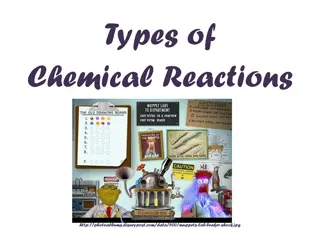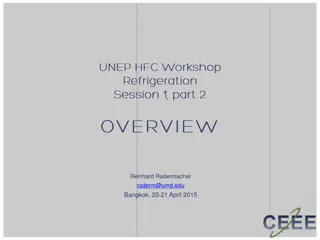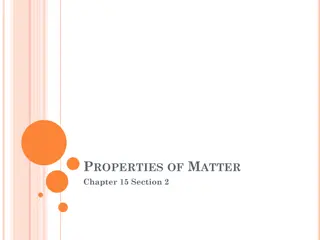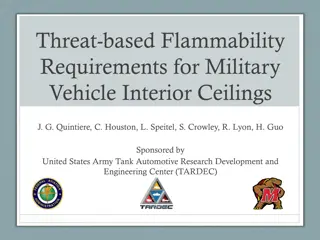Understanding Properties and States of Matter in Physical Science
Matter is made up of elements that cannot be broken down further. Different mixtures have distinct properties, such as solutions, colloids, and suspensions. Physical properties like viscosity and density can be observed without changing the material's composition. Chemical properties, like flammabil
2 views • 15 slides
Understanding Natural Gas: Properties, Dangers, and Safety Measures
Explore the principles of natural gas, its chemical composition, properties, and potential dangers. Learn about gas formation, extraction, and usage. Discover how to manage gas leaks, prevent ignition, and ensure safety in handling natural gas. Gain insights into flammability, static electricity ris
0 views • 15 slides
Understanding Synthetic Fibres: Advantages, Disadvantages, and Uses
Dive into the world of synthetic fibres, from their production in laboratories using chemicals to their uses and comparisons with natural fibres. Explore the advantages and disadvantages of synthetic fibres such as nylon, polyester, and more. Understand their properties, including wrinkle resistance
0 views • 8 slides
Understanding Different Types of Chemical Reactions
Chemical reactions involve the transformation of reactants into products. This comprehensive guide covers various types of reactions, including synthesis, decomposition, single-replacement, double-replacement, and combustion. Each reaction type is explained with examples and observable evidence such
0 views • 11 slides
Comparison of Refrigerant Properties and Emissions in Refrigeration Systems
This content covers information on refrigerant properties for refrigeration equipment, including displacement volume, flammability, and performance metrics like COP and GWP. It also discusses total emissions comparisons based on material manufacturing, energy consumption, and refrigerant loss. Addit
0 views • 4 slides
Understanding Physical and Chemical Properties of Matter
Explore the distinction between physical and chemical properties of matter in Chapter 15, Section 2. Learn to classify properties such as color, flammability, odor, shape, taste, density, and more. Understand how physical properties can be observed without altering the substance's identity, while ch
0 views • 17 slides
Technical Aspects of HFC Management: Overarching Issues & Solutions
Addressing critical technical aspects of HFC management including availability, costs, energy efficiency, flammability, safety standards, leak reduction, and training. Highlighting key areas such as patents, operational costs, and energy efficiency to drive innovation and sustainability in refrigera
0 views • 11 slides
Threat-Based Flammability Requirements for Military Vehicle Interior Ceilings
This study focuses on developing a test protocol to evaluate the fire thermal and toxicity hazards of ceiling cushioning materials in armored military vehicles during accidental or war fire ignition incidents. The approach involves establishing specific ignition threats and toxicity exposure criteri
0 views • 12 slides







